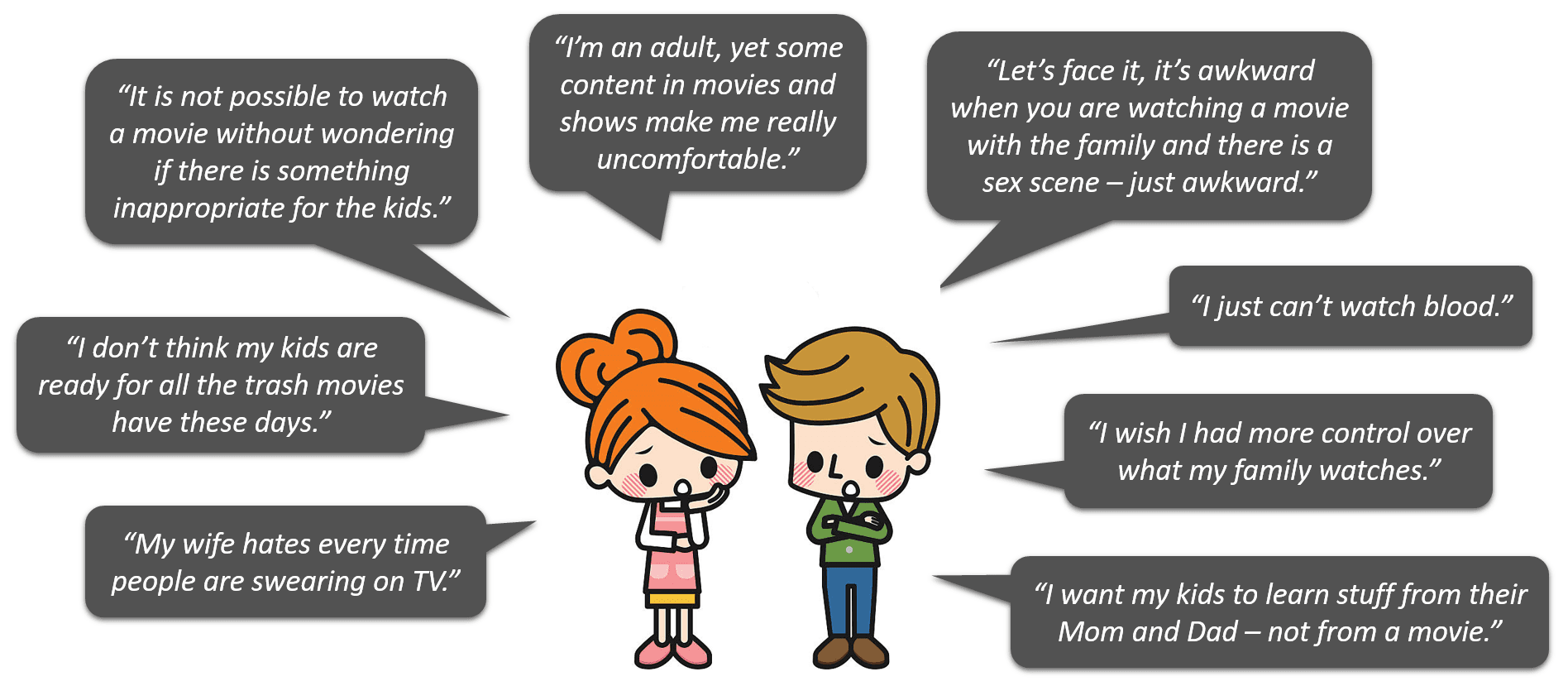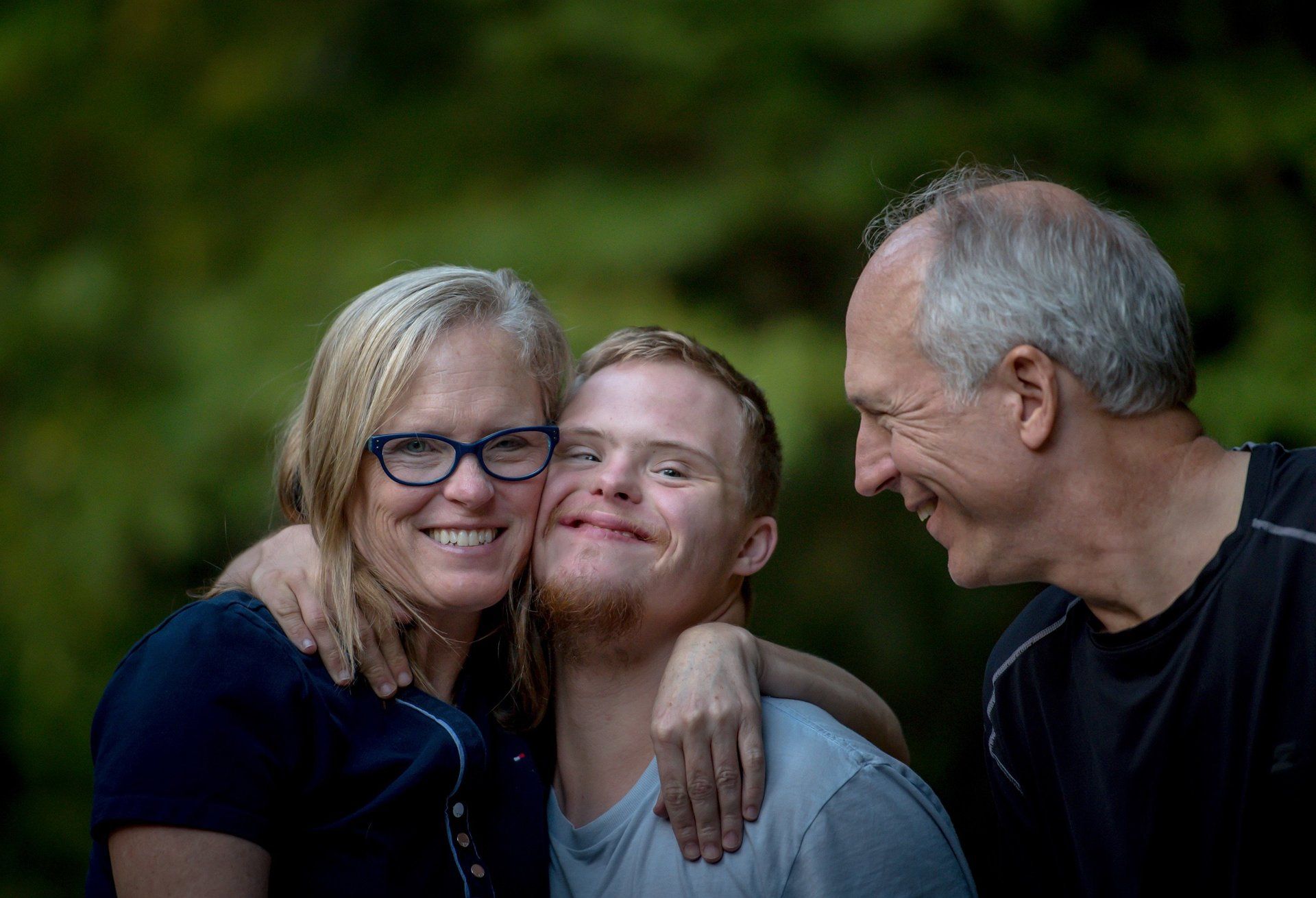We can make the right choices to protect our families –
but only when we are aware there is a problem
but only when we are aware there is a problem
We’re so used to the content that floods our lives every day and it’s become the question of, have we let it all become too graphic, too explicit for us to even notice it anymore? Where do we draw the line? Have we already gone too far and how can we manage it?
Whilst we perceive the presence of a problem, we are often desensitized and it has become difficult to put a finger where the problem lays. Over the course of our research with focus-groups, many individuals from different backgrounds always seemed to converge on certain expressions:

Bad Language
Foul language is one of the leading issues concerning parents when it comes to what they wish they could filter out of movies and shows for their kids – and even for their own. The severity of language has a wide range going from crude humor, all the way to strong vulgarity and blasphemy.
The sensitivity to language varies between cultures, for instance, people fluent in two languages respond far less strongly to swear words in their mother tongue than in their second language.
A recent study conducted by Professor Jeff Bowers at the University of Bristol, demonstrates that the use of bad language can alter our behavior. The results of his study, throw some light on a question often debated by linguists and psychologists: do the words you say affect the way you think and perceive the world?
Bowers pointed out that all sorts of emotions are associated with the sound of swear words as we are growing up, our strong emotional reactions to swear words happen as a result of early verbal conditioning, rather than the meaning that is conveyed. This raises the possibility that young children may note their parents' reactions to taboo words before they understand what the words mean.
Graphic Scenes
Graphic content has a broader scope than even language. Many things fall under this term, this includes sexual scenes, nudity, drug use, violence, and even certain medical procedures and life issues such as suicide – all these are a major concern to parents when it comes to their children watching them as part of a popular movie.
Parents know that they will need to address these issues with their kids, but they wish to do it on their own terms and not being prompted by a show – sexually related situations are of the most concern.
Early exposure to sexual content in the media may have a profound impact on children’s values, attitudes and behaviors toward sex and relationships. Unfortunately, media portrayals do not always reflect the message parents want to send.
Psychologist Carolyn C. Ross M.D., M.P.H. says: Even if young children can’t understand sex or its role in relationships, the images they see can leave a lasting impression. It’s a basic premise of marketing that what we watch, read and direct our attention toward influences our behavior. And, as any marketer knows, sex sells.
Research has long established that teens who watch movies or listen to music that glamorizes drinking, drug use or violence tend to engage in those behaviors themselves. A 2012 study shows that movies influence teens’ sexual attitudes and behaviors as well. The study, published in Psychological Science, found that the more teens were exposed to sexual content in movies, the earlier they started having sex and the likelier they were to have casual, unprotected sex.
Preserving our children’s youth then becomes a priority. For most families, banning media from the home isn’t a realistic option. The goal isn’t to avoid the issue, but to approach it so that your children learn from their most trusted source: you.
please Join our mailing list
OUR PROMISE:
- We will not spam you. You will receive just a few items periodically – we promise!
- We will never share your information with anyone
- We will reply to you personally if you send us a message
- If you ever want to stop receiving our updates, we will unsubscribe you right away








